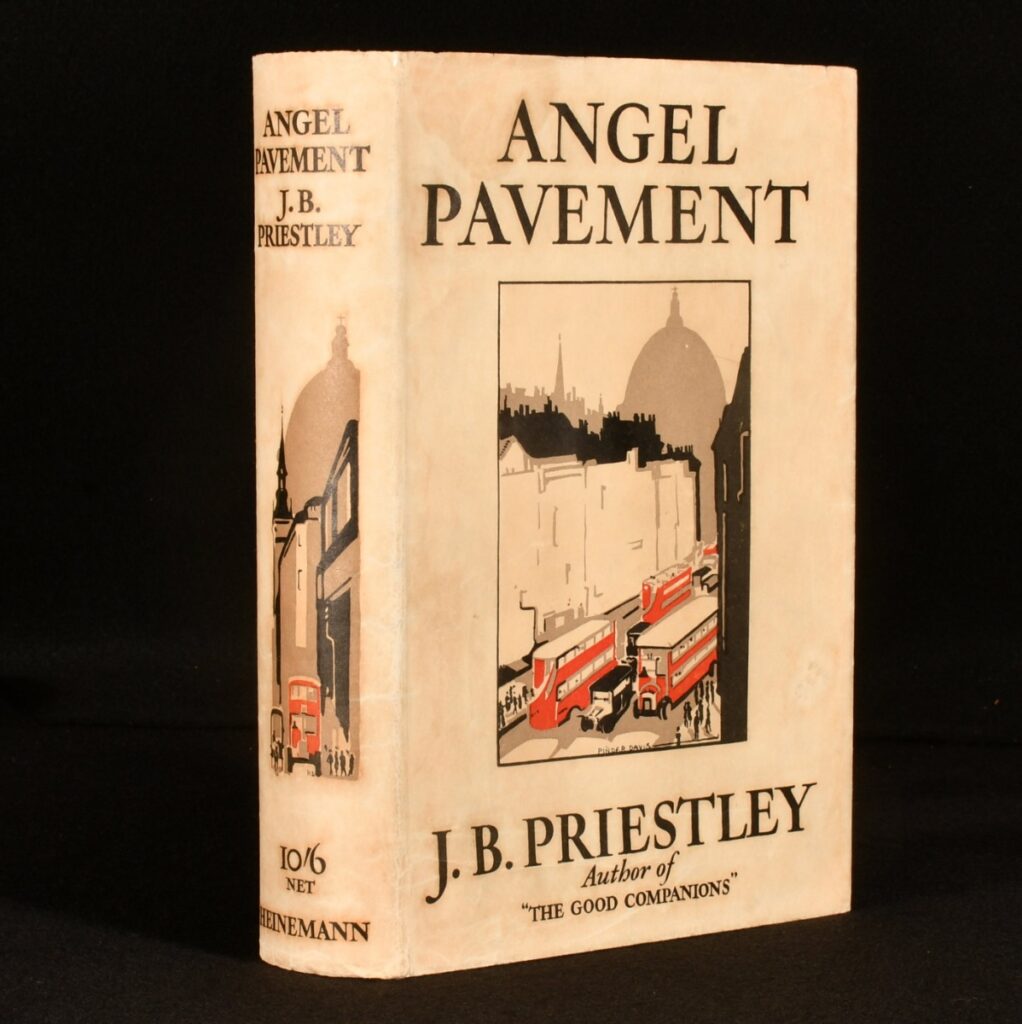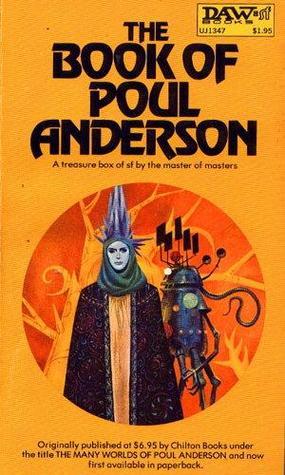J. B. Priestley is best known for his many successful plays. But Priestley also wrote essays, autobiographies, criticism, and novels. Angel Pavement was published in 1930 and presents characters on the cusp of the Great Depression.
Priestley, who displayed his fascination with the world of work in his plays and novels, centers the action of Angel Pavement with the staff of Twigg and Dersingham, a struggling firm located in the lonely, aging, decrepitude of The Roaring Twenties London.
One of most vivid characters in this novel are James Golspie, who arrives in London by ship from Europe, determined to make a fortune. Golspie is an entrepreneur with business skills, but the time and the economical situation works against him.
“She stood in the entrance a minute or two after he had gone, fumbling for her key, and suddenly from that great ocean of deep depression which she always felt was not far away, rose in the dark a great breaker and swept her away. She could have cried. It was not Norman Bartley–he was feeble fool who was rapidly getting worse–but the endless cheating of life itself that frightened her and stifled her. She was Lilian Matfield, Lilian Matfield, the same that had going playing and laughing and singing and looking forward to everything only a few years ago, no different now except a little older and more sensible, and yet she felt, obscurely, darkly, that somehow she was being conjured into somebody miserably different, somebody stiff and faded and dull.” (p. 252-253)
Lilian Matfield is my favorite character in Angel Pavement. She’s a brilliant secretary at Twigg and Dersingham, superior to all the other staff–mostly men–who shuffle papers day after day. And, given the time, being a woman stifles her advancement and hope in the business world. She lives in an apartment building with other young, single working women .
Here’s Miss Matfield on Christmas: “It was, on the whole, she decided, revolting. You gave people a lot of silly things, diaries and calendars and rot, or useful things that were not right, gloves the wrong size and stockings of the wrong shade…and they in their turn gave you silly things and useful things that were not right. You ate masses of food you didn’t want…then you sat about, pretending to be jolly, but really stodged, sleepy, headachy, and in urgent need of bicarbonate of soda.” (p. 385)
Miss Matfield is drawn to James Golspie simply because he knows his business and stands out among the mediocrity of the Twigg and Dersingham staff. Miss Matfield yearns for excitement to liven up her dull life. Here’s what Miss Matfield reads during her lonely evenings: “There were two travel books and three novels of romance, and all three stories had for their setting such places as Borneo and the South Seas. This was not mere coincidence. Miss Matfield like her fiction to be full of jungles, coral reefs, plantations, lagoons, hibiscus flowers, the scent of vanilla, schooners on the wide Pacific, tropical nights. So long as the young man was first shown to her dressed in white and lounging on a verandah, while a noiseless brown figure brought him something long and cool to drink, she was ready to follow his love story to the end.” (p. 406)
Angel Pavement is almost 100 years old. At 608 pages, it is too long for most contemporary readers. When Miss Matfield and Golspie disappear from a chapter, things get tedious in a hurry. If you’re in the mood for a clever though dated novel about the eve of the Great Depression, Angel Pavement is the perfect novel. GRADE: B












